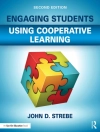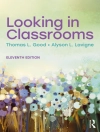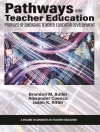The lifecourse perspective continues to be an important subject in the social sciences. Researching the Lifecourse offers a distinctive approach in that it truly covers the lifecourse (childhood, adulthood and older age), focusing on innovative methods and case study examples from a variety of European and North American contexts. This original approach connects theory and practice from across the social sciences by situating methodology and research design within relevant conceptual frameworks. This diverse collection features methods that are linked to questions of time, space and mobilities while providing practitioners with practical detail in each chapter.
Tabela de Conteúdo
Introduction ~ Nancy Worth & Irene Hardill;
Part I: Time;
Time and the lifecourse: perspectives from qualitative longitudinal research ~ Bren Neale;
Time in mixed methods longitudinal research: working across written narratives and large-scale panel survey data to investigate attitudes to volunteering ~ Rose Lindsey, Elizabeth Metcalfe & Rosalind Edwards;
A restudy of young workers from the 1960s: researching intersections of work and lifecourse in one locality over 50 years ~ John Goodwin & Henrietta O’Connor;
A method for collecting lifecourse data: assessing the utility of the lifegrid ~ Ann Del Bianco;
Part II: Space & place;
Life geohistories: examining formative experiences and geographies ~ Bisola Falola;
Using mapmaking to research the geographies of young children affected by political violence ~ Bree Akesson;
Keeping in touch: studying the personal communities of women in their fifties ~ Sophie Bowlby;
Triangulation with soft GIS in lifecourse research: situated action possibilities and embodied knowledge ~ Kaisa Schmidt-Thomé;
Part III: Mobilities;
Using a life history approach within transnational ethnography: a case study of Korean New Zealander returnees ~ Jane Yeonjae Lee;
Sensing sense and mobility at the end of the lifecourse: a methodology of embodied interaction ~ Anne Leonora Blaakilde;
Event history approach to life spaces in French-speaking research ~ Françoise Dureau, Matthieu Giroud & Christophe Imbert;
Using an intersectional lifecourse approach to understand the migration of the highly skilled ~ Melissa Kelly.
Sobre o autor
Irene Hardill is Professor of Public Policy at Northumbria University.












